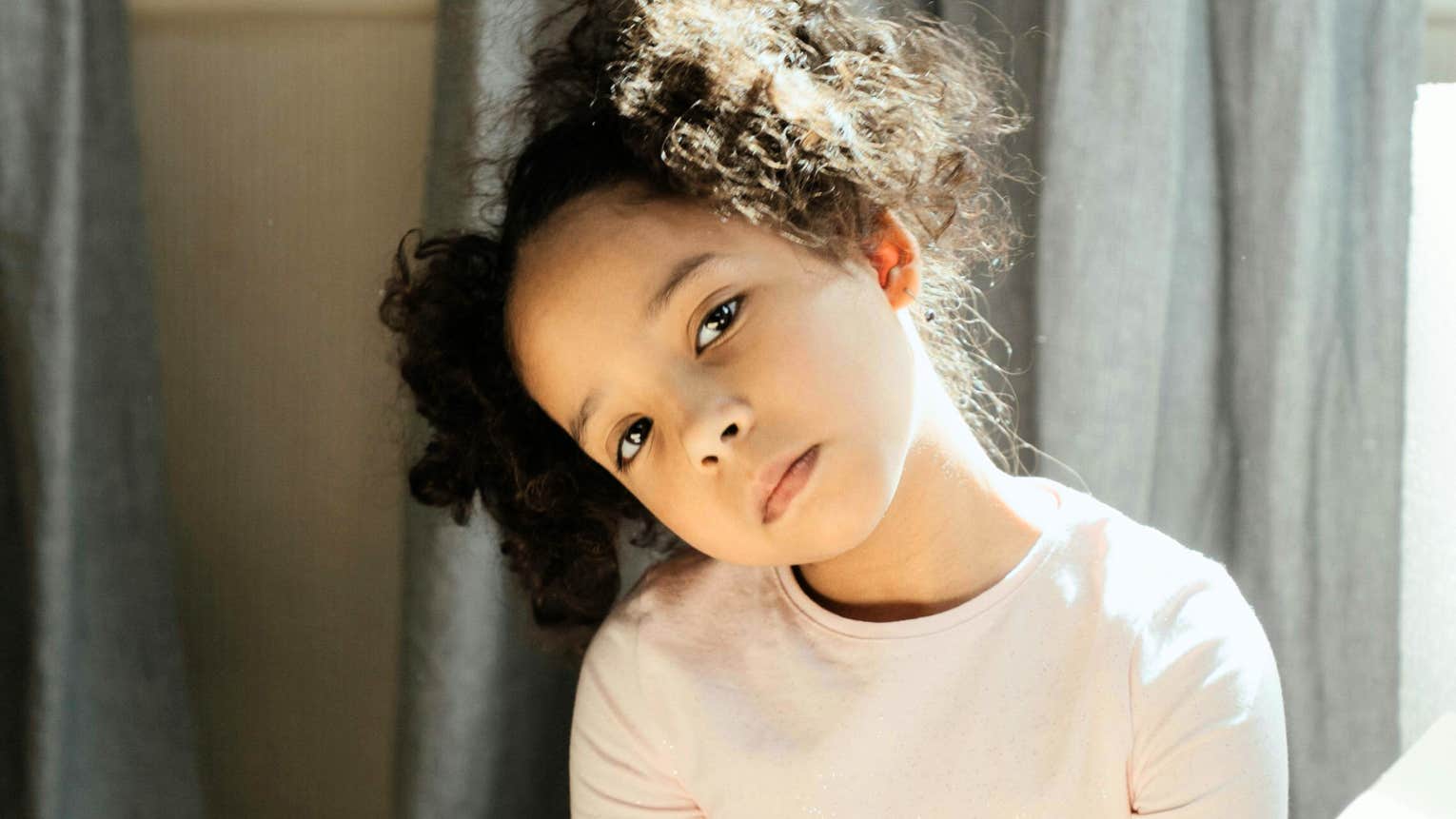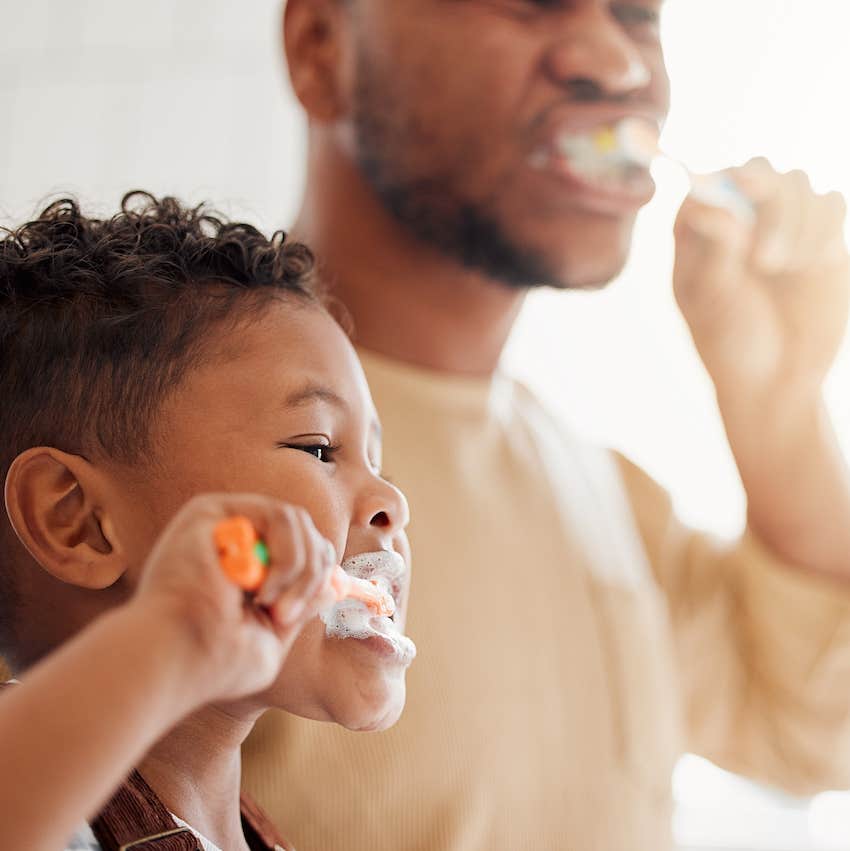Kids With Low Self-Esteem Get It From This Parent, According To Research
Some self-esteem traits seem to run in the family.
 cottonbro studio | Pexels
cottonbro studio | Pexels Self-esteem is a lot like Ikea furniture — few parents know how to build it correctly and a lot of kids risk getting hurt because of it. Scientists suspect that the key to developing self-esteem is starting early when children are young and their brains are still developing.
This is part of the reason why low self-esteem seems to run in the family — kids with low self-esteem get it from both of their parents.
Adults with poor self-esteem are likely to focus on themselves rather than their kids.
The problem is it’s much easier to build self-esteem in kids, so it makes logical sense for the focus to start with them, to break the cycle, and then get on the more difficult task of following suit as an adult.
The first thing parents need to do is to forget their fears of raising tiny megalomaniacs. “There is no such thing as too much self-esteem. Self-esteem comes from your understanding of yourself and the world around you,” psychiatrist Dr. Lea Lis told Fatherly. “Your self-esteem cannot be too healthy.”
An American Psychological Association (APA) study discovered that children start to develop self-esteem as early as 5 years old. This is when the brain starts to create thought and behavioral patterns known as schemas, or “packets of information which are accumulated and stored in the neural networks of your brain over long periods,” Lis explains.
Experiences and feedback shape both positive schemas or thoughts like, “I am smart,” “I am kind,” and “I am capable.” Depending on the experiences and the feedback that's being given, negative schemas form and become harder to correct over time.
 noBorders - Brayden Howie via Shutterstock
noBorders - Brayden Howie via Shutterstock
Young children are taking in an enormous amount of data from the world around them as their neural networks are just starting to form. This makes their schemas more flexible, but also more delicate. The right messages make as big of a difference as the wrong ones.
Self-esteem, therefore, isn’t built on praise in itself, but on the right kind of praise. Namely, parents don’t want to praise kids for just doing things well, but also when they try and fail.
While some parents worry about too much self-esteem leading to narcissism, this is a psychological response to low self-esteem. Narcissists only derive worth from their wins and need constant praise to keep their big, fragile egos from shattering. In other words, praise isn’t the problem — it’s more of a symptom and occasionally, a scapegoat.
Likewise, the idea of raising tough and resilient kids who don’t depend on praise comes from high self-esteem. These are the people who know their worth regardless of what happens.
Psychotherapist John Mathews points out that a more accurate, or at least less weighted, term for “self-esteem” is “self-efficacy,” or the belief in an ability to solve problems and have agency over what happens in life. Rather than raising kids who think they’re great, self-efficacy is more about raising kids who have purpose and meaning in their lives.
“You can help a child build self-efficacy by encouraging him or her to try to solve problems independently,” says Matthews. “As a parent, you want to praise your child’s efforts, regardless of the outcome.”
In other words, unconditional positive feedback regardless of the outcome is key, but many parents today were not raised on that, so it is more difficult than they expect. Parents with low self-esteem are prone to pass it on to their kids, regardless of the positive feedback they give their kids because they’re modeling low self-worth, according to a 2017 APA study.
Since their schemas are more developed, a parent's low self-esteem is also harder to correct, because they’ve been listening to the wrong messages for so long.
Kids pick up on all of their parents' low self-esteem and might eventually start to believe they’re not good enough, either.
 PeopleImages.com - Yuri A via Shutterstock
PeopleImages.com - Yuri A via Shutterstock
Like putting on their oxygen mask on an airplane, parents are going to have to take care of their low self-esteem first before they can work on their kids.
This can be incredibly difficult for exhausted parents who feel like they’re failing regularly, but it is crucial for raising kids who feel good about themselves.
Dr. Lis recommends cognitive behavioral therapy for starters, as well as the book Feeling Good, The New Mood Therapy by Richard Burns, which gives further insight into why it takes so long to reverse negative self-perceptions, but it is possible and probably more than worth it.
“Children learn to see the world through the eyes of their caregivers,” Lis warns. “If parents are putting themselves down, or are fearful or distrust others, they are likely to pass down these traits to their children.”
Like a treehouse or a bunk bed, self-esteem may be hard for parents to build, but just because you grew up without it doesn’t mean your kid should also have to grow up without it.
Lauren Vinopal is a writer who focuses on parenting, family, and self-love.

